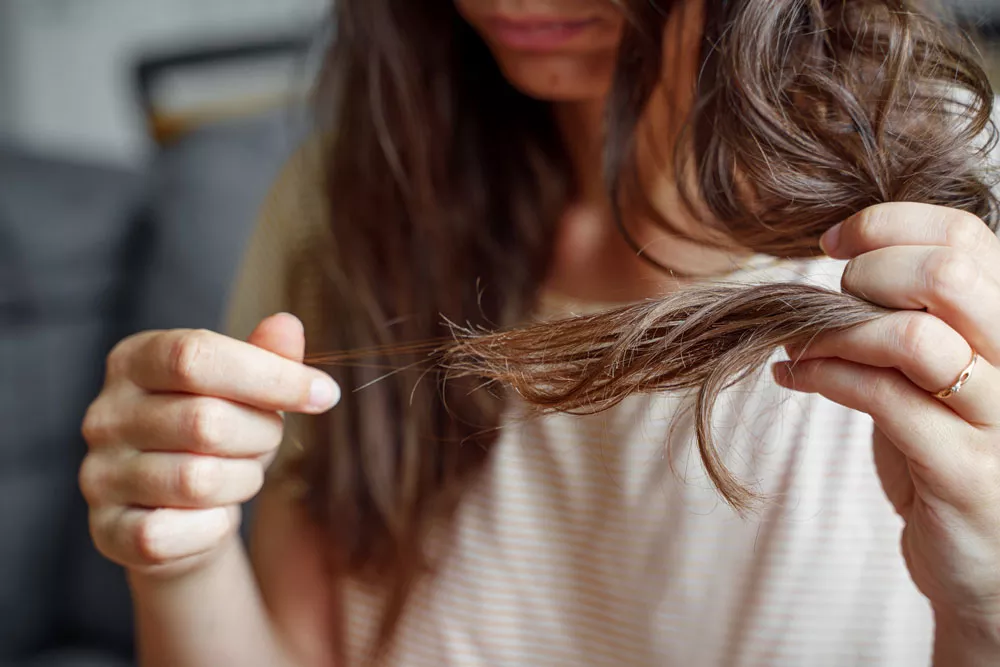Hair loss can be a distressing experience for both men and women. While there are various factors that contribute to hair loss, one common approach to addressing this issue is through scalp treatments specifically designed for hair loss.
These treatments aim to nourish the scalp, promote hair growth, and combat the underlying causes of hair loss. In this article, we will explore different types of scalp treatments for hair loss, providing targeted solutions for specific conditions and concerns.
Scalp Treatment for Androgenetic Alopecia
Androgenetic alopecia, also known as pattern baldness, is the most common form of hair loss. It is characterized by a gradual thinning of hair, typically in a specific pattern, such as receding hairline or a widening part.
Scalp treatments for androgenetic alopecia often focus on reducing the production of dihydrotestosterone (DHT), a hormone that contributes to hair loss. Ingredients like minoxidil, finasteride, and saw palmetto are commonly used in these treatments to inhibit DHT and stimulate hair growth.
Scalp Treatment for Alopecia Areata
Alopecia areata is an autoimmune condition that results in patchy hair loss. Just like organic hair loss treatments, scalp treatments for alopecia areata aim to reduce inflammation and stimulate hair regrowth. Corticosteroids, either in topical or injectable form, are often used to suppress the immune response and promote hair growth.
Additionally, minoxidil and other hair growth stimulants may be incorporated into the treatment regimen to enhance the effectiveness.
Scalp Treatment for Telogen Effluvium
Telogen effluvium is a temporary hair loss condition that occurs due to a disruption in the hair growth cycle. It can be triggered by factors such as physical or emotional stress, hormonal changes, nutritional deficiencies, or certain medications.
Scalp treatments for telogen effluvium focus on nourishing the scalp and supporting healthy hair growth. Ingredients like biotin, vitamins, minerals, and amino acids are often included to promote the regrowth of hair and restore the normal hair growth cycle.
Scalp Treatment for Scalp Infections
Certain scalp infections, such as fungal infections (e.g., ringworm) or bacterial infections, can lead to dry itchy scalp and eventually, hair loss. Scalp treatments for scalp infections typically involve the use of antifungal or antibacterial agents to eliminate the underlying infection.
These treatments may also incorporate soothing and healing ingredients to reduce inflammation and promote a healthy scalp environment for hair regrowth.
Scalp Treatment for Thinning Hair
Thinning hair can result from a variety of factors, including age, hormonal changes, and improper hair care practices. Scalp treatments for thinning hair aim to improve scalp circulation, strengthen the hair follicles, and promote thicker and fuller hair growth.
Ingredients like caffeine, niacin, and peptides are commonly used in these treatments to stimulate blood flow, enhance nutrient delivery to the hair follicles, and encourage hair growth.
Scalp Treatment for Dry Scalp and Hair Loss
Dry scalp can cause hair to become brittle, leading to breakage and hair loss. Scalp treatments for dry scalp and hair loss focus on restoring moisture and nourishment to the scalp. Ingredients like hydrating oils (e.g., argan oil, jojoba oil), aloe vera, and glycerin are often included to hydrate the scalp, reduce flakiness, and promote a healthier scalp environment for hair growth.
Scalp Treatment for Dandruff and Hair Loss
Dandruff, characterized by flaky and itchy scalp, can contribute to hair loss if left untreated. Scalp treatments for dandruff and hair loss typically incorporate ingredients with antifungal properties to combat the underlying fungal overgrowth that causes dandruff.
Common ingredients in these treatments include ketoconazole, zinc pyrithione, and tea tree oil. These ingredients help to eliminate the fungus, reduce inflammation, and promote a balanced scalp environment for healthy hair growth.
Scalp Treatment for Stress-Related Hair Loss
Stress is a significant contributor to hair loss, and scalp treatments targeting stress-related hair loss aim to address both the physical and emotional aspects of the condition. These treatments often include ingredients with calming and soothing properties, such as lavender oil, chamomile extract, and adaptogenic herbs like ashwagandha or ginseng.
By reducing stress and promoting relaxation, these treatments help to mitigate the impact of stress on hair health and encourage regrowth.
Scalp Treatment for Nutritional Deficiencies
Nutritional deficiencies, particularly deficiencies in vitamins and minerals essential for hair health, can contribute to hair loss. Scalp treatments for nutritional deficiencies often involve incorporating nutrient-rich ingredients like vitamins (such as Biotin, Vitamin E, and Vitamin D), minerals (such as iron and zinc), and amino acids (such as keratin) to nourish the scalp and support healthy hair growth.
These treatments help to address the underlying nutritional imbalances and promote optimal conditions for hair regrowth.
Scalp Treatment for Postpartum Hair Loss
Many women experience hair loss after giving birth, known as postpartum hair loss. Scalp treatments for postpartum hair loss focus on nourishing the scalp and supporting hair regrowth during this hormonal transition.
Ingredients like biotin, collagen, and plant-based extracts (such as horsetail or bamboo extract) are often used to strengthen the hair follicles, improve hair density, and promote healthier regrowth.

